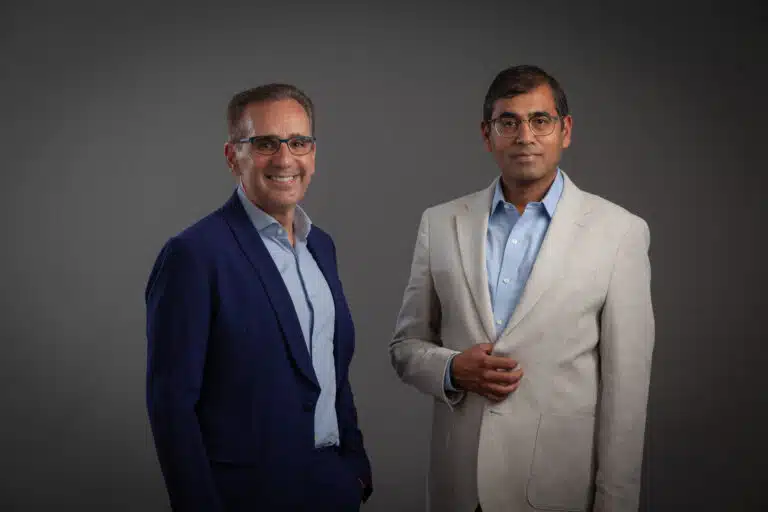What a year of change. From talking more about AI’s role in our everyday lives, to following economic and labor trends, and seeing more global upheaval unfold, this year made it clear that disruption is here to stay.
One thing practically every talent leader agreed on this year is this — if you aren’t using a solution like AI to keep pace with the changes, you will quickly fall behind. The world of work is being transformed by new technologies, and evolving and in-demand skills will change just as fast.
We created several content pieces to help you understand what’s happening in this dynamic world of work and how to keep pace with the changes. From webinars on identifying and elevating the talent with the skills you need, to guides to making the case for AI with your C-suite, to better explaining what ethical and responsible use of AI means, we hope this collection of our best assets from 2023 helps show you what is possible with talent intelligence — and how it can help your organization adapt to almost anything and build a brighter future.
Related content: If you haven’t watched our “State of AI” video with Josh Bersin and our CEO and Co-founder Ashutosh Garg, it’s a great overview of the challenges — and great opportunities — of AI to transform the talent space.
Top reports: How to talk to executives about why you need talent intelligence
We know that HR leaders often have conversations about what should go into a modern talent-planning process. Whether it’s taking a skills-focused approach, how to implement new technologies like AI, or even how to make the case for new solutions with the C-suite, we created several in-depth, research-based projects to help anyone who wants to learn more about the value of talent intelligence.
How to get executive buy-in for AI in your HR tech stack
Talking to the C-suite and other executives about adding to your HR tech stack is one thing — but talent transformation goes way beyond staffing at this point. Imperatives to improve the talent experience for everyone is now an organizational must as the right talent supports and drives overall business goals forward. Top companies won’t be able to compete unless they have the right talent with the right skills in place.
Our latest guide, Driving HR Transformation: How to get executive buy-in for AI, helps you make the case for AI-powered talent intelligence with everyone in the C-suite. From helping you meet overall business objectives, increasing retention and reducing costs, and even improving DEI, the right platform will help drive every initiative in every department throughout your entire organization with smarter decision-making around talent.
Go beyond the résumé and build a workforce based on skills
This year the skills conversation was elevated to the next level. Everyone was talking about how understanding skills is fundamental to organizational success. The message is clear — adopt a skills-based approach now or be left behind.
In our original research report, Beyond the résumé: Building a workforce with a skills-based approach, we break down why you need to take a skills-based approach to talent planning to keep up with the shifting job market and find the key skills your organization needs. We also include how to best upskill and reskill your workforces, look to skills adjacencies to fill skills gaps, and create an environment of continuous learning with five steps you can use to equip your employees with the skills your organization must have to remain competitive in your industry.
ChatGPT’s impact on the future of work
A little more than a year ago, ChatGPT headlined around the world — and made everyone take another look at how AI can impact our work worlds by automating tasks.
We took a deeper dive into what generative AI can do to help HR professionals simplify their jobs by automating tasks to drive productivity in our paper ChatGPT and the future of work. AI has the potential to take on many manual and time-consuming tasks to free up talent professionals to do higher-level work. We also included 10 jobs that will be greatly impacted or created by AI to round out the report.
The future of work includes AI and tools like ChatGPT — it’s more about how you put these technologies to work in an ethical and responsible way to make them work best for you.
Top webinars: Learn how to master talent planning from HR leaders
Our leaders often join forces with today’s top thinkers and doers in HR to create webinars to help anyone learn the latest tricks and tools of the trade — and how to put them to work.
Focus on employee experiences that matter
In addition to adopting a skills-based approach, we heard from organizations that they needed new ways to retain and elevate their top talent. Employee retention often comes down to creating great employee experiences. And that’s where talent intelligence comes in.
PwC joined us for this webinar, From skills to success: Leveraging technology and innovation to transform employee experience, on how to use talent intelligence to power a skills-based approach to employee experience that can transform your workforce. Through more engaging projects and career-development guidance, your employees will learn how to take more control over their growth with greater visibility into opportunities that can help your business meet the challenges of tomorrow.
Rethink how you staff with a talent-centric approach
We all know there isn’t enough talent to go around, and quickly advancing technical skills — along with declining worker populations — mean that finding enough talent to fill the labor gaps is only going to get tougher.
In this webinar, The long-term shortage of talent in the post-industrial age, Josh Bersin joined our Chief Economist Sania Khan to discuss the three strategies every organization needs to undertake to survive. Leaders must shift to think of their organization as dynamic, and then rethink how they manage talent with human-centered leadership. Finally, it’s time for HR to function more like R&D — it’s a part of the organization that must be invested in to support and grow the business.
AI can help you do almost everything smarter, faster, and more personalized
While the future of work is changing faster than ever, HR is presented with a new opportunity to be at the epicenter of every organization.
Deloitte joined us for this webinar, Smarter, faster, personalized: Crafting the future of HR with AI, on how to work smarter and faster than ever before — all while providing highly personalized employee experiences that drive engagement. AI can drive productivity and efficiency at scale for HR leaders by automating work, increasing speed of service, delivering insights, and analyzing large sets of data to enable decision-making, all positioning HR to take on a higher role in elevating the entire organization.
Top blogs: Stories about talent transformation made possible by AI
Our articles present a focused take on a particular topic, recap important talent news, or present something new. We had no shortage of news this year, with product launches, customer stories, and expert advice. Here are our top articles that explain why you need AI-powered talent intelligence in your HR tech stack.
We talk AI with Josh Bersin
In this video and blog, “The state of AI in HR,” Josh Bersin sat down with our CEO and Co-founder Ashutosh Garg to talk about AI in HR. While technology will be integral to how we hire and manage talent going forward, many also have questions about ethical and responsible use, safety, efficacy, and more.
In this interview, Garg tackles Bersin’s questions around the top concerns about AI, including how AI can be used for good in the talent space, how it promotes a skills-based approach, and why talent intelligence will be the only way to stay ahead of the competition. It’s a must-see primer for anyone interested in the opportunities and challenges of AI in HR.
The quick breakdown on why you need talent intelligence
It’s hard to summarize exactly why you need talent intelligence — and everything it can do — in one place, but if you want a quick breakdown to get started or share with colleagues, the article “Why it’s time for AI-powered talent intelligence in your tech stack” is for you.
In this piece, we explain what true talent intelligence is and what it does; how it uses a skills-based approach to talent acquisition and management; promotes DEI and equality; and helps drive better business outcomes across the entire organization.
Adjacent skills are the answer to finding the hard-to-find skills you need
Prolific Chief Economist Khan cranked out all kinds of content last year, including reports, articles, and several interviews, but her piece “Adjacent skills for the AI-driven jobs of tomorrow” really resonated throughout the year. While everyone was worried about AI’s impact on jobs, Khan smartly set us up for the next major revolution in labor, which will change the way we work in under five years.
We’re only at the beginning of this transformation, with AI showing “tremendous potential” for changing the ways we’ll work, including increased automation of everyday tasks and completely new types of jobs working with AI on the rise. Khan addresses why you’ll never find all the highly technical or hard-to-find skills you’ll need for this new work revolution — some jobs don’t even exist yet — but if you follow adjacent skills, you’ll more easily be able to identify the talent who can do the jobs of tomorrow, today.
Last but not least: Don’t forget our podcast
The New Talent Code took a break after our last episode launched in January, but it was a great way to wrap up our first season. Our Chief People Officer Darren Burton joined us to talk about why CHROs need to have a seat at the boardroom table when it comes to overall strategic workforce planning.
This isn’t a trend that’s going away anytime soon. More businesses are taking a keen eye to talent as a strategic advantage as they look to hire people with the technical skills they need to stay ahead. HR professionals are uniquely positioned to put talent at the center of every organization and lead the future of work.
And for our podcast friends, don’t worry, new episodes of The New Talent Code are set to roll in 2024.
Let us bring all our latest and greatest talent news to you. Sign up for our monthly newsletter with all our content highlights and never miss a thing again.



